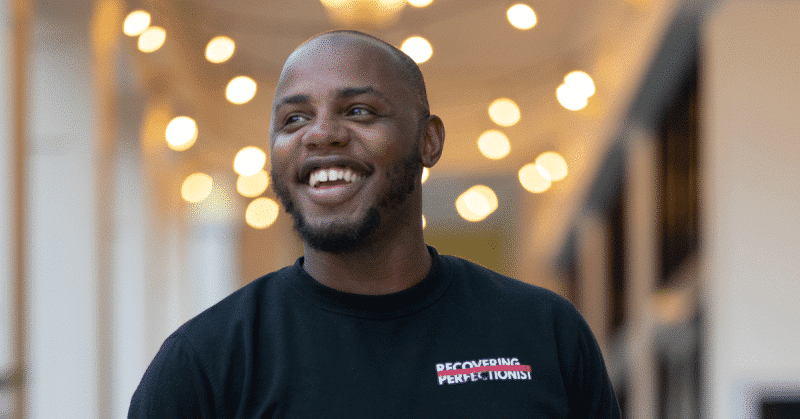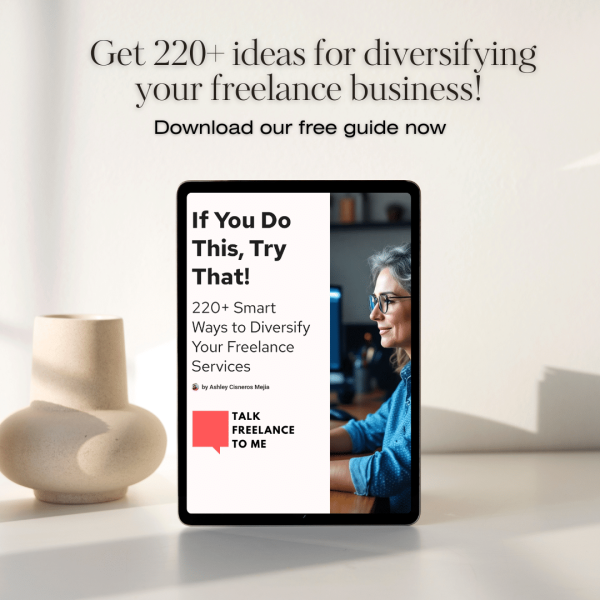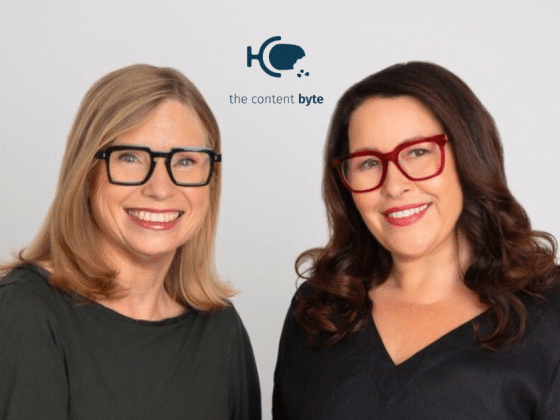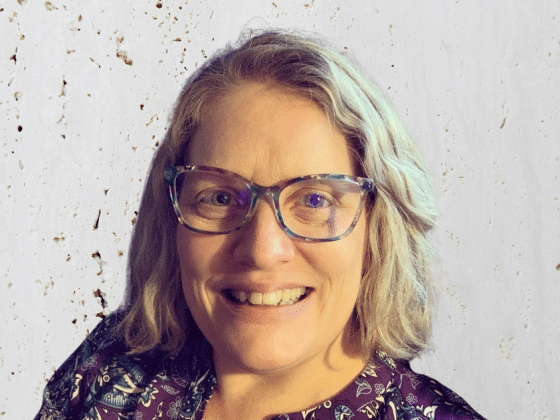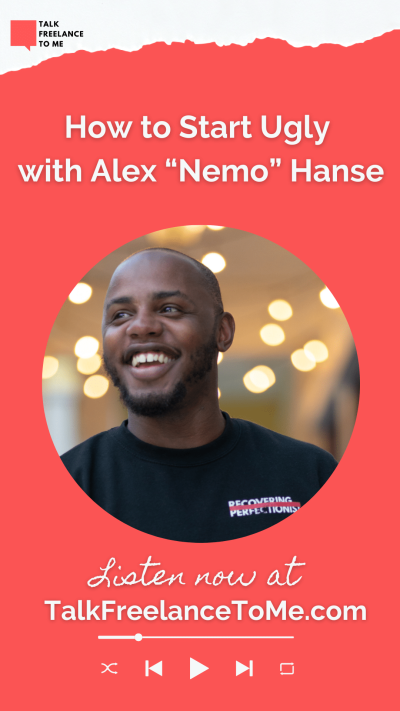
Click the player above to listen to the episode. Or listen on your favorite podcast app! We’re on all major podcast platforms including: Amazon Music, Apple Podcasts, Spotify, YouTube Music, and iHeart Radio, to name a few. You can also watch the interviews on our YouTube channel.
Table of Contents
- What happens when you stop asking for permission and start betting on yourself?
- Time Stamps
- About Alex “Nemo” Hanse
- Noteworthy Quote From This Episode
- Listen Now
- Watch This Interview on YouTube! Subscribe here!
- Diversify Your Freelance Business
- Let’s Get Social
- Read The Transcript
- How Rap Became Nemo’s First Creative Outlet
- Learning From Rappers: Branding, Confidence, and What Success Looked Like
- The Origin Story of Foolies — From Passion to Personal Branding
- Rap as a Gateway Into Design and Creative Freelancing
- When Freelancing Feels “Foolish” — Breaking Expectations
- Honoring Black Women: The Heart Behind Nemo’s Mission
- Why Black Women Are Central to FOOLIES
- Niching Down: What Freelancers Can Learn From Paying Attention to Real Support
- How Nemo Became the Right-Hand Creative for Women-Led Brands
- Seeing the Audience in Front of You: A Freelance Lesson Most Creatives Miss
- How Foolies Shirt Concepts Are Born: Listening to Real Conversations
- Building Messages That Freelancers and Creatives Need to Hear
- AI, Ideas, and Imposter Syndrome for Creative Freelancers
- You Are the Answer — Stop Waiting for Permission
- Freelance Pricing, Confidence, and Not Talking Yourself Out of the Sale
- How We’re Trained Out of Our Own Instincts
- When Your Ideas Get Used Without Credit
- Death by a Thousand Paper Cuts in Corporate and Freelance Life
- Showing Up Fully as Yourself — Even in Corporate Spaces
- Why Freelancers Should Treat Ideas Like Assets
- Influencing the Room: Learning What Different Stakeholders Care About
- Why This Matters for Freelancers Working With Teams
- Surviving Layoffs, Dark Seasons, and the Emotional Whiplash of Freelance Life
- Treating Your Life Like a Netflix Series
- Holding Out for the Plot Twist
- Using Imagination for Possibility, Not Just Fear
- Faith, Survival, and Wanting Other People to Make It
- The “Start Ugly” Collection: Giving Yourself Permission to Begin
- Designing Imperfect Work on Purpose
- Creating for Yourself First, Not Just for the Market
- A Message for Freelancers: Done Beats Perfect
- Where Listeners Can Find Nemo and Foolies
- A Final Word for Freelancers and Creatives
What happens when you stop asking for permission and start betting on yourself?
In this episode of The Talk Freelance To Me® Podcast, host Ashley Cisneros Mejia sits down with creator, designer, entrepreneur, and all-around inspiration Alex “Nemo” Hanse, the mind behind the Foolies movement and one of the most refreshingly honest voices in the creative world.
Nemo shares how rap became his gateway into entrepreneurship, why honoring his late mother fuels everything he builds, and what it truly looks like to serve the people who have stood by you. He talks candidly about self-doubt, imposter feelings, layoffs, creative courage, and the emotional truth behind his popular shirts like Imposters Never Have This Syndrome, Fear Don’t Live Here Anymore, and the new Start Ugly collection.
This conversation cuts straight to the heart of freelancing and creative work:
Who are you serving?
What lights you up?
And what would happen if you let yourself speak up, take up space, and create boldly, even when it’s imperfect?
Nemo’s presence is grounding, energizing, and full of straight truth. If you’re looking for a spark, this is it.
In this episode, you’ll learn:
- Why “foolish” dreams often point you toward your real calling, not away from it
- How rap, design, and creativity can become a bridge into entrepreneurship
- What it looks like to build a brand that unapologetically centers the people you wish to serve
- How to notice who is actually supporting your work and turn that into your niche
- Practical ways to push back against imposter thoughts and self doubt
- Why “Start Ugly” is more than a slogan and how to apply it to your next project
- How to reframe setbacks, layoffs, and dry seasons as one chapter in a longer story
- Simple mindset shifts to help you speak up, share your ideas, and stop waiting for permission
- How to use tools like AI as creative partners instead of proof that you “aren’t enough”
- What it means to build a business grounded in community, conviction, and purpose
Time Stamps
2:38 — Meet Alex “Nemo” Hanse
4:15 — The Birth of Foolies
5:35 — Influence of Rap and Design
6:55 — Representation and Uplifting Black Women
9:00 — Niche, Community, and Support
11:45 — Imposter Syndrome & Inspiration for Shirt Designs
15:57 — Overcoming Doubt and Speaking Up
18:05 — Socialization, Entrepreneurship, and Authenticity
21:43 — Navigating Corporate and Freelance Worlds
24:03 — Staying Motivated Through Tough Times
28:28 — “Start Ugly” Collection
31:13 — Where to Find Nemo
About Alex “Nemo” Hanse
Alex Hanse (Nemo) is a senior graphic designer at Jobs for the Future, specializing in graphic design, branding, and marketing strategy. He has collaborated with industry leaders like Arlan Hamilton and Raymond James Investment Management. As the founder of Foolies Limited Clothing, Nemo’s designs and socially conscious messaging advocate for Black women and women of color in entertainment. Recognized by Essence, the Oprah Winfrey Network, and Gary Vaynerchuk’s bestseller “Crushing It!”, Nemo’s work reflects his commitment to using design for social good. He holds degrees from the University of Florida and Full Sail University.
Connect with Nemo on LinkedIn and learn more about Foolies at http://thefoolies.com
Noteworthy Quote From This Episode
“You’re the answer. You’ve always been the answer. Speak up, even if you’re trembling while doing it.”
Alex “Nemo” Hanse
Listen Now
Click the player above to listen to the episode. We’re also available on all major podcast platforms including: Amazon Music, Apple Podcasts, Spotify, YouTube Music, iHeart Radio, Podcast Addict, and Deezer. You can also find all episodes on our Buzzsprout page and watch our interviews on our YouTube channel. Get more info about our freelance podcast here.
Watch This Interview on YouTube! Subscribe here!
Diversify Your Freelance Business
Discover 220+ freelance service ideas to diversify your income using the skills you already have. This free guide helps writers and creatives expand into new offers, niches, and formats—without starting from scratch. Get your diversification guide here.
Let’s Get Social
Love the podcast so far? Rate and review us if you use Apple Podcasts and join in the freelance conversation on Instagram, Facebook, TikTok, Twitter/X, and YouTube! You can also connect with Ashley on LinkedIn and check out our boards on Pinterest!
Read The Transcript
This transcript has been lightly edited using AI for clarity and length.
Ashley Cisneros Mejia: Hello everyone, and welcome to another episode of The Talk Freelance To Me® Podcast. I’m your host, Ashley Cisneros Mejia, and today I’m thrilled to connect with someone I’ve admired from afar, been inspired by, and yes — bought merch from. We’re going to get into all of that.
Nemo, how are you?
Alex “Nemo” Hanse: I’m good. I appreciate you. It’s always a little weird hearing people speak highly of you because culturally we’re trained to deflect, but thank you. I’ll leave it at that.
How Rap Became Nemo’s First Creative Outlet
Ashley Cisneros Mejia: You’ve done so many things — rap, graphic design, art, entrepreneurship. You’ve built a clothing line we’ll talk about in a minute. How did you first stumble into this wild, creative world of entrepreneurship?
Alex “Nemo” Hanse: Outside of my faith in God, I found rap during some of the toughest seasons of my life. Rap music helped me understand my own pain.
I lost my mom to breast cancer, and hearing rappers talk about losing family members helped me get through things. It made me wonder if I could write something meaningful too.
My first rap was terrible — something like, “I come in multiples of three, Alex is my name, but Jigga who I actually be.” I was copying Eminem and Jay-Z because that’s what success looked like to me as a kid growing up in Miami.
Learning From Rappers: Branding, Confidence, and What Success Looked Like
Alex “Nemo” Hanse: All the people I saw succeeding were artists. They had the cars, the clothes, the lifestyle — and they all seemed to come from places like mine.
As I paid attention, I saw rappers expanding into clothing, jewelry, perfume, cologne. That’s how I learned what entrepreneurship looked like.
The first curveball was seeing Daymond John. He wasn’t a rapper, but he was building a clothing empire. It opened my eyes. I realized you didn’t have to rap to create something powerful.
The Origin Story of Foolies — From Passion to Personal Branding
Ashley Cisneros Mejia: So many rappers used clothing lines as part of their bigger business strategy. I’m wearing one of my favorite Foolies designs right now — the “Imposters Never Have This Syndrome” tee. Tell me how Foolies evolved from an idea into the movement it is today.
Alex “Nemo” Hanse: Foolies started with my brother-from-another-mother. He was my engineer, and I was the rapper. We really thought we’d become the next Big Sean or Jay-Z.
But we were college grads — he studied journalism, I studied sports medicine before earning degrees in audio engineering and graphic design. People thought we were foolish for chasing rap.
But we weren’t foolish — we were FOOLIES. People who believe in their dreams so deeply that others call them crazy for going after them.
When my songs started, I’d shout, “FOOLIES, it’s the movement!” And that came from studying how artists build communities. Lady Gaga had her Monsters. Wiz Khalifa had Taylor Gang. Today you see the Swifties and the Beyhive.
It taught me that personal branding is everything. If people don’t know what to latch onto, they can’t become part of your community.
Rap as a Gateway Into Design and Creative Freelancing
Alex “Nemo” Hanse: Rap didn’t just inspire clothing. It made me appreciate album covers, physical CDs, and the artistry behind them. I’d walk through the mall in Miami studying design brands like Akademiks and Ecko.
That curiosity pushed me toward design — learning how to make my own album covers, record myself, and eventually build my own creative skill set.
It was all an evolution. Each step led to the next, whether it made sense or not. That’s the Foolies spirit — doing the thing that sounds crazy, and doing it anyway.
When Freelancing Feels “Foolish” — Breaking Expectations
Ashley Cisneros Mejia: A lot of people think entrepreneurship is foolish. Freelancing too. Especially when you’ve invested in degrees or followed a traditional path.
I see so many freelancers — especially former nurses, teachers, or people with specialized careers — who pivot because they want something different. And people around them say, “Are you crazy?”
I love that you took a word people use negatively and turned it into an identity you wear proudly.
Honoring Black Women: The Heart Behind Nemo’s Mission
Ashley Cisneros Mejia: One thing I appreciate so much about your work is how intentionally you uplift Black women. It shows up in your designs, your messaging, everything. How does representation shape your creative decisions and the way you build Foolies?
Alex “Nemo” Hanse: Outside of my love for my mom — who was an amazing Jamaican American Black woman — she’s the root of everything I do.
I lost her to breast cancer. She embodies the Foolies spirit. She came from Jamaica, rebuilt her life, earned her GED, became a nurse, then pivoted to cosmetology because she wanted a new path.
She had blueprints for her own salon, a full vision, everything… and she never got to fulfill it. So my purpose is this: no one should leave this earth with their blueprints still inside them.
Why Black Women Are Central to FOOLIES
Alex “Nemo” Hanse: Because of my mom, I feel a responsibility to honor people who look like her. Anyone who reminds me of her — or lives adjacent to her experience — deserves encouragement, motivation, love, and belief.
And to be real, Black women were the first people to show up for me. They supported the brand. They bought the shirts. They shared my work. They told their friends.
I had someone buy 15 to 20 shirts for her entire birthday gathering. That’s community. That’s love.
I’d be silly not to reciprocate. Yes, anyone can wear my shirts — but my heart, my gratitude, my intention lives with Black women.
Niching Down: What Freelancers Can Learn From Paying Attention to Real Support
Ashley Cisneros Mejia: In business, people talk a lot about niching down. Getting specific. Being brave enough to serve the audience that’s already showing up for you.
In the freelance world, so many creatives start as generalists. But the ones who grow usually commit to a niche — even if it feels scary.
What you’re describing is such a reminder: pay attention to who is supporting you. Let that shape your work.
Alex “Nemo” Hanse: And that’s exactly what happened in my freelance life, too. Black women were the ones hiring me.
When other brands ignored me or didn’t take me seriously, a Black woman would say, “I see you. I trust you. I want you to work with me.”
They never lowballed me. They never asked for a discount. They paid my rate — sometimes even said, “That number’s high, but it’s your number. Let’s do it.”
How Nemo Became the Right-Hand Creative for Women-Led Brands
Alex “Nemo” Hanse: The first time I got paid my worth was when I decided, “I want to uplift dope Black women CEOs. I want to support their brands and be their right hand.”
I used to look at people like Gary Vee — they always have that right-hand videographer, strategist, social media person. I asked myself: Why can’t I be that for these women building incredible businesses?
They’re out here doing extraordinary things, exceeding expectations, beating industry stats, often doing it all alone.
I wanted to pick up some of that weight. Help them cross more finish lines. And honestly, my entire resume, my whole career trajectory — it’s all tied to Black women who said, “We’ve got you.”
Seeing the Audience in Front of You: A Freelance Lesson Most Creatives Miss
Ashley Cisneros Mejia: What you’re saying is something freelancers need to hear. So many solopreneurs ignore what’s right in front of them because they’re chasing the “big fish.”
Meanwhile, the people who are already supporting them — buying, booking, recommending — get overlooked.
If freelancers pulled their invoices or client list, they’d often see a clear pattern. It’s so important to lean into the community that’s already choosing you.
How Foolies Shirt Concepts Are Born: Listening to Real Conversations
Alex “Nemo” Hanse: And that ties right into how I create shirts. Everything starts with the conversations I’m in.
I see these brilliant Black professionals — master’s degrees, PhDs, certifications, awards — but they still say, “I’m not good enough.”
Meanwhile, scammers walk around with full confidence like they’re the greatest thing on earth.
So I watch these conversations. I see the comment sections online where people talk about fear, anxiety, doubt, being overlooked, not being valued.
That’s where shirts like Fear Don’t Live Here Anymore, Imposters Never Have This Syndrome, and Amazing Your Goals, Your Dreams, and Your Melanin come from.
Building Messages That Freelancers and Creatives Need to Hear
Alex “Nemo” Hanse: Corporate America wears people down. The bias. The barriers. The “work twice as hard” messaging. The invisibility.
So I wanted Foolies to function like the old Apple slogan: “There’s an app for that.”
But for me? There’s a Foolies shirt for that.
If you’re scared to put something out? Start ugly.
If you’re doubting yourself? You don’t have that syndrome.
If you’re being overlooked? You’re still amazing.
Sometimes I’ll say a line in a rap or on social media, and people will say, “Hold on — that line right there.” And that’s when I know I’ve hit something.
AI, Ideas, and Imposter Syndrome for Creative Freelancers
Alex “Nemo” Hanse: AI is everywhere right now. I joke that I talk to AI like a homie.
One day I asked, “Is it cheating if I get an idea, then ask AI to help me flesh it out?”
I know the idea is mine. I just need help shaping it.
The answer that hit me was this: how is that any different from talking to a team of professionals?
Ashley Cisneros Mejia: Exactly. One hundred percent. Freelancers do this all the time with human collaborators.
Alex “Nemo” Hanse: That moment showed me how deep my imposter syndrome ran. Here I am, an idea person since childhood, still wondering if I’m “cheating” by using tools.
Meanwhile, the imposters never ask that question. They launch mediocre ideas with full confidence and never think twice.
You Are the Answer — Stop Waiting for Permission
Alex “Nemo” Hanse: That’s the thing. You are the answer to a problem in your industry, company, or market.
You’ve always been the answer. You just need to speak up more.
And if you’re trembling while you talk, that’s okay. Say it anyway.
People think, “Someone else must already be thinking this.” They’re not. That lightning bolt of insight hits you for a reason.
Sometimes silence in the room doesn’t mean people disagree. It means they’re stunned because they didn’t see what you see.
You planted a seed. It’s just taking a minute to land.
Freelance Pricing, Confidence, and Not Talking Yourself Out of the Sale
Alex “Nemo” Hanse: You see a similar pattern when freelancers quote their prices.
You say, “My fee is $5,000,” and then you keep talking.
You backpedal and start negotiating against yourself.
Ashley Cisneros Mejia: Oh my gosh, yes. That’s the worst thing we do to ourselves as freelancers and creative professionals.
Alex “Nemo” Hanse: You dilute your own power. Sometimes you have to say the number and be quiet. Let people sit with it.
How We’re Trained Out of Our Own Instincts
Ashley Cisneros Mejia: What you’re saying reminds me of my youngest son. He’s in kindergarten, learning the rules of the system.
We were at dinner and he kept raising his hand, crossing his fingers, making little signals. I finally asked, “What are you doing?”
He said, “I have to go potty.” I told him, “Baby, you’re home. You don’t need permission. Just go.”
We get socialized through school to sit down, be quiet, raise our hands, and wait to be called on.
That conditioning follows us into freelance life and entrepreneurship. We start asking, “Is it okay for me to say this? Is it okay for me to build this?”
But when we’re born, we come into this world exactly who we’re meant to be. Then all these systems chip away at that.
Entrepreneurship is counterculture. Freelance work is counterculture. It’s you deciding, “I’m not waiting for someone to tap me in. I’m putting myself on.”
When Your Ideas Get Used Without Credit
Alex “Nemo” Hanse: And then there’s the pain of giving ideas to a company or client, watching them use them, and getting nothing back — not even a high five.
After that happens enough times, a lot of creatives think, “Why bother?”
They decide to shut down and stop offering their best.
I understand it. I’ve been there. But if you stay in that place, it will shrink you into a version of yourself that never fully comes back.
Even when you finally land in a space where you could be free and fully expressed, you’ll still be replaying, “Yeah, but ten years ago at that other company…”
Death by a Thousand Paper Cuts in Corporate and Freelance Life
Alex “Nemo” Hanse: It’s not usually just one big thing. It’s death by a thousand paper cuts.
The micromanaging. The email that left your name off. The promotion you didn’t get. The client who underpaid you.
All those tiny moments stack up and convince you to stay quiet.
That happened to me. I silenced myself for a long time. I didn’t speak up in rooms. I didn’t bring my full self.
Then I started having real one-on-ones with people, opening the treasure chest and letting them see what was actually in my mind.
People would say, “Where has this been? Why aren’t we seeing more of this version of you?”
At first, I took that as an insult. Now I see they were saying, “We haven’t been getting the real you.”
Showing Up Fully as Yourself — Even in Corporate Spaces
Alex “Nemo” Hanse: These days, I show up as me. If we work together, call me Nemo. That’s the version of myself I live in.
I rap. I use rap to write great copy. I see visuals in my head before they exist.
I’m going to say things in meetings that people would never think of, and that’s not about ego. It’s firepower. It helps everyone win.
I’m here to close the gaps. To see what’s missing in the market. To hear the voices people haven’t listened to.
A lot of freelancers work with corporate clients. I’m the freelancer who went inside corporate — and I’m still bringing the same creative energy.
Now, if I pitch an idea and they don’t like it, I don’t take it personally. Maybe it’s not the right time. That idea goes in a bag for later.
Why Freelancers Should Treat Ideas Like Assets
Alex “Nemo” Hanse: Sometimes you need to treat your ideas like a pilot episode for Netflix.
You can’t just walk in and say, “I have a great movie about a kid who changes the world,” and expect them to greenlight it.
You need the pilot, the artwork, the concept, the layout, the proof of concept.
And if one client or company passes? Cool. That concept now lives in your creative backpack.
That’s part of your portfolio. Something you can show another client. Or turn into your own project as a freelancer.
Influencing the Room: Learning What Different Stakeholders Care About
Alex “Nemo” Hanse: Another thing: sometimes you can’t sell a big idea to a group all at once.
In those meetings, there’s usually one person whose opinion sways everyone. If they’re not convinced, the idea dies.
That’s why you talk to people individually. Learn what matters to them.
Cynthia wants to know where the money is going.
Jeff cares about big impact and visibility.
Someone else wants to see data.
So you tell Cynthia, “I can do this for almost no extra budget.”
You tell Jeff, “Here’s how this could go to the moon.”
You tell the data person, “Here are the numbers and proof points.”
Then when you bring the idea back to the room, everyone’s already on board for their own reasons.
Why This Matters for Freelancers Working With Teams
Ashley Cisneros Mejia: That’s such an important skill for freelancers.
We might only see the director of marketing on Zoom, but behind them is a whole internal team we’ll never meet.
They’re all weighing in on our design, case study, or copy. Their opinions sometimes conflict. We get mixed feedback that doesn’t line up.
When we understand the different perspectives — money, brand, legal, data — we can navigate that more gracefully. It also shows we respect and value what each person brings to the table.
Surviving Layoffs, Dark Seasons, and the Emotional Whiplash of Freelance Life
Ashley Cisneros Mejia: When you mentioned the “dungeon” earlier, I felt that.
Entrepreneurship and freelance life come with wild highs and some very dark lows. I see so many people announcing layoffs on LinkedIn right now.
How do you stay motivated through those hard seasons? And what advice do you have for creatives and freelancers facing struggles in their business or career?
Alex “Nemo” Hanse: That question always feels heavy, because I don’t know the full weight of what each person is going through.
I also know a lot of people have already “tried everything,” so I never want to sound like I’m just saying, “Apply to more jobs” or “Try harder.”
Treating Your Life Like a Netflix Series
Alex “Nemo” Hanse: The way I personally cope is by thinking of my life like a Netflix show.
I’m on season 37. If something goes wrong, I tell myself, “This is just a tough episode. We’re not ending the series here.”
You know how you binge a show and keep watching because you want to see how the main character wins? I think about my life that way.
There has to be a cliffhanger before the breakthrough. This isn’t the final scene.
Holding Out for the Plot Twist
Alex “Nemo” Hanse: In movies, there’s always that moment when the supporting character shows up, or the main character finally connects the dots and brings a big idea to the table.
Or they’re walking down the street and see a sign, or someone says something random that becomes the thing that changes everything.
I believe those moments exist in real life too. You might be seconds away from a client, a new opportunity, or a mindset shift that changes your path.
So I keep telling myself, “I win at the end of this show.” That’s the energy that keeps me moving, even when things look bleak.
Using Imagination for Possibility, Not Just Fear
Alex “Nemo” Hanse: I read somewhere that we use our imagination poorly.
You can picture the worst-case scenario in full detail — losing your job, getting rejected, everything falling apart.
But what if you used the same imagination to picture what goes right?
What if this pitch wins?
What if this leap leads to something better?
What if you fly instead of fall?
You can either push yourself down a staircase of fear in your mind, or you can imagine something beautiful and expansive instead.
Faith, Survival, and Wanting Other People to Make It
Alex “Nemo” Hanse: My faith in God keeps me grounded through all of this.
I’ve been through a lot, and the fact that I’m still here is proof to me that the story isn’t over.
If I can make it through what I’ve gone through, I believe your story can unfold in powerful ways too. I want to see people make it through their own seasons.
The “Start Ugly” Collection: Giving Yourself Permission to Begin
Ashley Cisneros Mejia: Earlier you mentioned “Start Ugly,” which is the name of your new collection. I love that phrase, especially for freelancers and creatives who feel stuck.
Tell me what inspired this collection and how it applies to freelancers listening today.
Alex “Nemo” Hanse: “Start Ugly” began as a joke about my own work.
I looked back at my very first Foolies video — shot outside, tons of wind noise, recorded on a basic phone. It was rough.
I thought, “Wow, this is ugly.” And then I laughed and said, “Just start ugly.”
People responded right away. They said, “I needed that. This ‘Start Ugly’ series is helping me.”
Designing Imperfect Work on Purpose
Alex “Nemo” Hanse: I eventually turned “Start Ugly” into a shirt. I sketched it out myself and intentionally made the design look a little rough.
Even then, I caught myself thinking, “Is this too ugly?”
That’s the funny part. We second-guess even the things we’re trying to make imperfect on purpose.
But I put it out anyway. And it connected.
Creating for Yourself First, Not Just for the Market
Alex “Nemo” Hanse: Honestly, this year I shifted. I stopped caring as much about whether a design would sell.
I started putting out shirts for myself.
“Fear Don’t Live Here Anymore” — for me.
“This will be my debt-free year” — for me.
“Start Ugly” — for me.
“Stop Being So Hard on Yourself” — for me.
I still want the business to grow, but I’m not chasing numbers the same way.
I’m using these messages to pull myself out of my own dark places. If I can’t lift myself out of the hole, I can’t honestly tell other people how to get out of theirs.
The shirts are like hot air balloons for my spirit. They keep me rising.
A Message for Freelancers: Done Beats Perfect
Alex “Nemo” Hanse: For freelancers, “Start Ugly” is permission.
Launch the offer that isn’t perfectly built yet.
Post the content before you’ve over-edited it.
Send the pitch that scares you.
You can refine, polish, and improve. But you can’t edit what you never start.
Where Listeners Can Find Nemo and Foolies
Ashley Cisneros Mejia: I appreciate that so much, and I know you’re going to keep inspiring the folks who listen and watch this.
Where can people find you and connect after this episode?
Alex “Nemo” Hanse: I’m going to point people to my LinkedIn first.
Search for Alex Nemo Hanse on LinkedIn. That’ll open up my whole world.
And, of course, you can go to Foolies.com to check out the apparel, get something for yourself, or just scroll for some motivation.
If you leave the site feeling encouraged, that’s already a win for me.
A Final Word for Freelancers and Creatives
Alex “Nemo” Hanse: And honestly, if you’re still here listening to this episode, it’s for a reason.
People’s attention spans are short. If you’ve made it this far, every single word was meant for you.
Take what you need, leave the rest. Come back to this later if you have to.
Just like a book that hits differently ten years later, parts of this conversation might line up with your life in new ways down the road.
Ashley Cisneros Mejia: Thank you, Nemo. Thank you for the joy and encouragement you put into the world. We need it, and we appreciate you so much.
